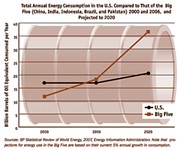Green Reading
Environs
Reviewed by Robert Bryce, Fri., May 5, 1995
That's a roundabout way of saying that I get a lot of books and I rarely get to read them. But lately, I've made time. Here are a few reviews:
The River Stops Here: How One Man's Battle to Save His Valley
Changed the
Fate of California
by Ted Simon (Random House, $23 hard)
It was to be called the Dos Rios Dam. Seventy stories tall, it was to be built on the Eel River in California by the Army Corps of Engineers, a quasi-military federal agency whose primary reason for existence has been massive public work projects, like dams. Proposed during the peak of dam-building fervor in the West, Dos Rios was supposed to be a flood control project. It also would have created one of the largest lakes in the western U.S. But preventing occasional floods downstream meant permanent flooding of the Round Valley, where Richard Wilson owned land.
A devout opponent of the dam, Wilson perhaps more than any other person was responsible for stopping the Dos Rios project. His obstinacy and fervor were mentioned in Marc Reisner's epic book of water in the west, Cadillac Desert. Now, Ted Simon, a British journalist who lives in the region, has written an entire book focusing on Wilson and the Dos Rios project. In the book, Simon lets attorney Lewis Butler describe his first encounter with Wilson: "This guy comes to the building and knocks on my door, and I let him in, and I remember this very well too, he's got on a dirty hat, a short brimmed Stetson, stained, very carefully stained, and a dirty shirt and dirty pants and dirty boots and he said his name was Richard Wilson.
"He said he had a problem. Had I heard of the Dos Rios Dam? No. Had I heard of the Round Valley? No. He got out a map and showed me." Butler and Wilson were later to become close allies in the fight against the dam.
Simon's book presents a case study of water in California and how the state's water policy has been dominated by the Corps of Engineers and metropolitan areas (like Los Angeles) which have continually sought ways to steal water from rural residents.
Simon told me that he didn't want his book to be characterized as an environmental book. It isn't. Rather, his book is about the politics of water, the politics of federal bureaucracies, and one man's fight to stop a project that should never have been started. California may seem like a long way from Texas. But if you've been following the machinations of the fight over the water in the southern portion of the Edwards Aquifer, you know that San Antonio is now looking to steal water from other parts of the state. If you are familiar with that fight, you will see similar themes in The River Stops Here. Anyone interested in the politics of water should read this book.
The Immigration Dilemma: Avoiding the Tragedy of the
Commons
by Garrett Hardin (Federation for American Immigration Reform, $5
paper)
Available from FAIR, 1666 Connecticut Ave, NW #400, Washington, D.C.
20009.
A collection of essays written by Garrett Hardin, a professor at the University of California-Santa Barbara, this short book argues for restraints on immigration and family size. The heart of the book (and the subtitle) come from an essay Hardin wrote in 1968. At the beginning of his treatise, Hardin quotes two security analysts who conclu-ded that the nuclear weapons race could not be won. "It is our considered professional judgement that this dilemma has no technical solution," they said. Hardin takes this quote to launch a far-ranging essay that covers everything from Adam Smith's economic theory to noise pollution.
Almost 30 years after it was published, Hardin's essay seems particularly prescient. "The National Parks present another instance of the working out of the Tragedy of the Commons," Hardin writes. "At present, they are open to all, without limit... Plainly, we must soon cease to treat the parks as commons or they will be of no value to anyone." In fact, over the past few years the National Park Service has begun restricting access to Yosemite Valley, the Grand Canyon and other parks to prevent the parks from being degraded by the horde of tourists who visit them every year.
Of noise pollution, he writes, "There is almost no restriction on the propagation of sound waves in the public medium. The shopping public is assaulted with mindless music, without its consent. Our government is paying out billions of dollars to create a supersonic transport which will disturb 50,000 people for every one person who is whisked from coast to coast three hours faster."
Hardin's book also contains chapters like "Free Immigration, The Enemy of Free Enterprise," in which he writes, "So long as we cannot reduce unemployment to zero, we should reduce immigration to zero." Hardin's publisher, the Federation for American Immigration Reform (FAIR), advocates a similar strategy. They propose an end to illegal immigration and a cap on legal immigration at no more than 300,000 people per year.
Whether or not you agree with FAIR's views on immigration, Hardin's 1968 essay has much to say about global population. He also appears to advocate some sort of global population cap, but offers no recipe for limiting family size and enforcing his ideal of limited breeding. "We must now recognize... the necessity of abandoning the commons in breeding. No technical solution can rescue us from the misery of overpopulation. Freedom to breed will bring ruin to all."
A study just released by Population Action International appears to confirm Hardin's essay. PAI says that world population is now growing eight times faster than cultivated land area. The result, says PAI, could be food scarcity for one billion people within the next 30 years. PAI says one in three Africans is already malnourished and that "continued population growth could result in unsustainable demands on the earth's agricultural land and water resources in the coming decades."
Hardin's pronouncements are stark and unapologetic. In the wake of the Cairo conference, which tried to deal with the global population boom, this book offers a hard-line approach.
The State of the World, 1995
A Worldwatch Institute Report on Progress Toward a Sustainable
Society
(W.W. Norton, $11.95 paper)
Every year, the folks at Worldwatch address some of the globe's most pressing problems in a State of the World report. This year, the issues covered include: fisheries, solar energy, mountain ecosystems, sustainable materials, budgeting for disarmament, and China.
One of my favorite sections was written by Christopher Flavin, an energy policy analyst. A condensed version of Power Surge: Guide to the Coming Energy Revolution by Flavin and Nicholas Lenssen, Flavin's chapter details the future of wind, solar, and hydrogen power. While touting the gains made by the solar and wind industries, he projects that hydrogen will be the fuel that replaces natural gas. "Over time, solar and wind-derived hydrogen could become the foundation of a new global energy economy."
He predicts that one of keys to that new economy will be the fuel cell. Used on the Gemini and Apollo space flights, the fuel cell turns hydrogen and air into oxygen, water and electricity. Flavin says that the fuel cell can produce electricity from hydrogen at an efficiency as high as 65percent. He writes, "Indeed, the fuel cell may one day be thought of as the silicon chip of the hydrogen economy." Now being marketed by Houston-based Enron and United Technologies, the fuel cell could be the machine that replaces the internal combustion engine.
The new State of the World also discusses the problems faced by China. "If recent growth patterns continue, China's use of coal will double in the next 16 years and its consumption of grain will rise by 40 percent." Those factors alone should be cause for concern for the rest of the world. As noted above, Population Action International is predicting a shortage of arable land, which could also mean a global grain shortage. But the authors of the section on China, Megan Ryan and Christopher Flavin, show that China can take another path. By embracing energy efficiency, farm land conservation, and fish farming, the authors believe China can reduce its demand for additional resources. With one-fifth of the world's residents, the authors say that "one thing is clear: China simply will not be able to follow for long any of the development paths blazed to date. Its abundance of people, shortage of resources, and collision with the technologies and political philosophies of the 21st century will force the country to chart a new and different course."
Those are just short bits from this fact-packed tome. Check it out.
MEETINGS, MEETINGS, MEETINGS: Next Friday, May 5, the Green Building Conference '95 returns for a three-day stint. Always an interesting event, this meeting will feature a mini-film festival, a speech by green guru Ian McHarg, and dozens of other cool happenings. This event gets bigger every year and this year promises to be the most comprehensive to date. Discussion topics include the green lessons learned from building the new Whole Foods Market at 6th and Lamar, energy efficient lighting, and green kitchens. The con-ference runs Friday through Sunday at Palmer Auditorium, and includes an exhibit hall. The cost is $50 for all three days, or $5 for just Saturday or Sunday. To register, or for more info, call Laurence Doxsey at 499-3504.










